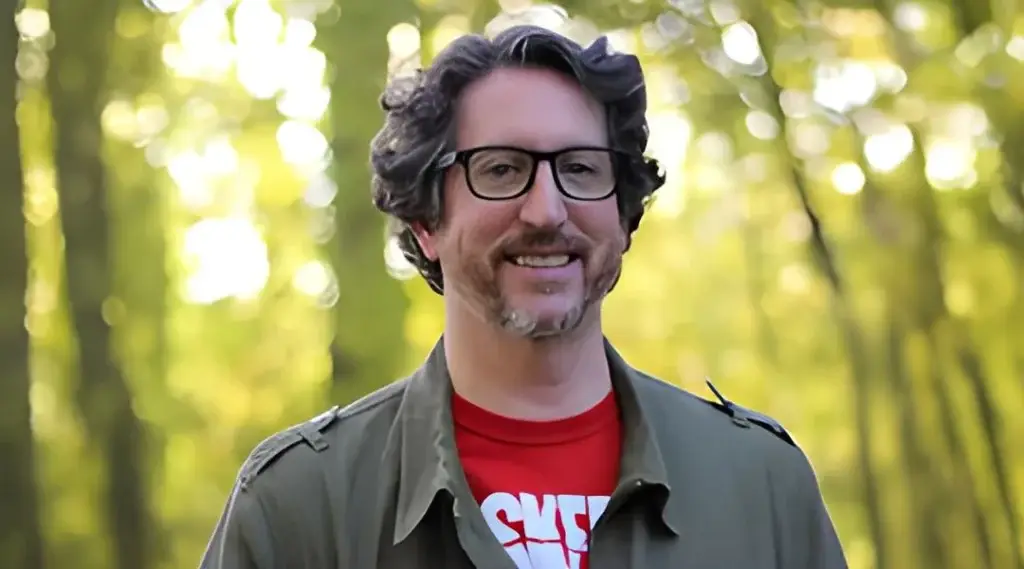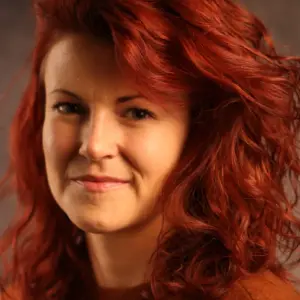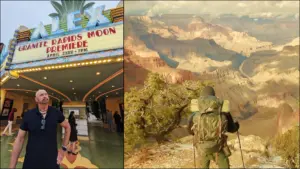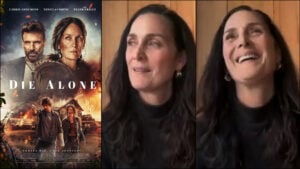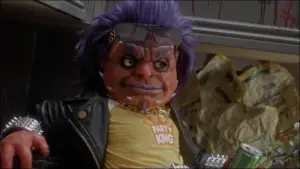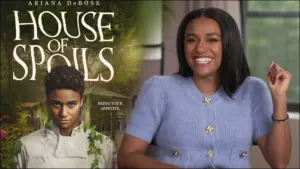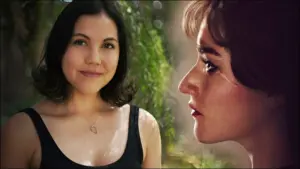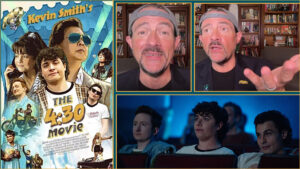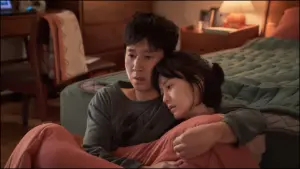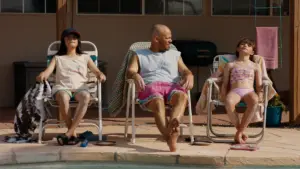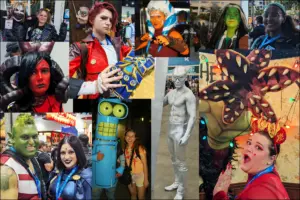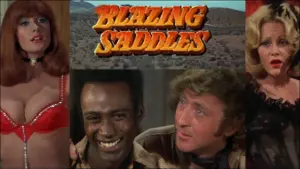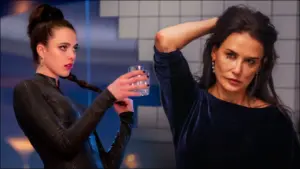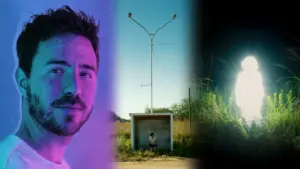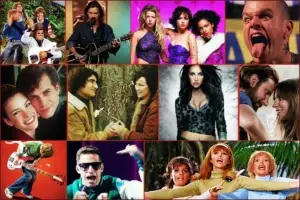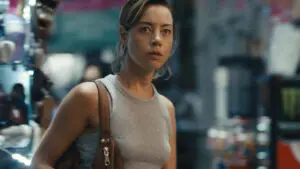The Cabin at the End of the World. The Pallbearers Club. Growing Things. The Beast You Are. Disappearance at Devil’s Rock.
If you’re a fan of horror novels, chances are you’ve read at least one of Paul Tremblay’s terrific books. Tremblay has refined the art of getting under the reader’s skin by taking characters who are impossible not to love and placing them in the most dire situations. Whether a little girl with a disarmingly sweet smile, a beloved local boy who goes from hiding under his bangs to missing in plain sight, or a friendly neighborhood vampire conflicted about feeding on someone she loves, the characters Tremblay renders are fully fleshed out human beings whose pain we feel acutely.
Recently, it was announced that Tremblay’s 2015 breakout hit A Head Full of Ghosts will be adapted for the big screen by Goodnight Mommy and The Lodge filmmakers Veronika Franz and Severin Fiala, and produced by Robert Downey Jr.’s Team Downey.
In the novel, 14-year-old Marjorie Barrett displays terrifying symptoms that her sister Meredith and parents interpret as schizophrenia. As their home falls into disarray, the family reluctantly seeks comfort in religion, and are bewildered when the church suspects possession by the devil himself. With the man of the house unemployed, medical bills piling up, and desperation mounting, the family grants a reality television show access to their escalating demise.
In this chat about his incendiary possession story, Tremblay and I discuss his affinity for supernatural ambiguity, the changes that the screen adaptation has gone through over the years, and what he hopes will wind up in Franz and Fiala’s final interpretation of the source material.
Kalyn Corrigan: What made you want to tell a story about possession?
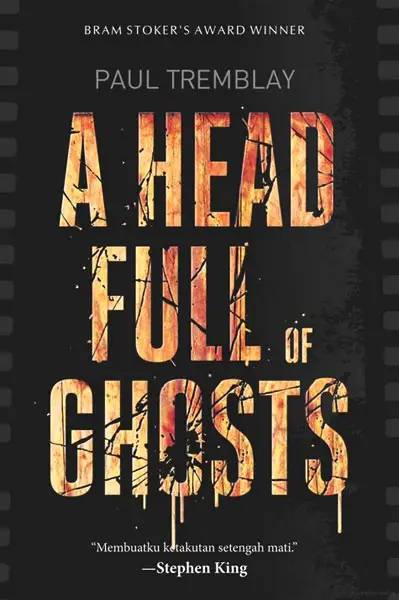
Paul Tremblay: A Head Full of Ghosts was sort of that eureka moment that every writer dreams of, and I was lucky to have one.
It was February of 2013 and I was like a hundred pages into a failed novel, a novel I didn’t end up finishing, and the idea for Head Full of Ghosts just fell into my lap. I read this book of essays and interviews titled The Exorcist: Studies in the Night Film and it was published by Centipede Press, which is a speciality press. It was great! Obviously, it had interviews with Friedkin, and all of the actors, but it also had a lot of critical essays and reactions to the film.
When I read [The Exorcist] as a kid, I was just like, oh, that was the scariest movie ever made. I never thought about it in political terms … how it was a very conservative movie. Reading the essays, I thought, “Nobody’s done a possession novel in a while.” So I started with, “I want to write one from a secular skeptic’s point of view,” and after a couple of days, the structure of the story landed in my lap — which definitely, usually does not happen. I wish it would happen again.
Why write a story revolving around two sisters as opposed to an only child?
I think I knew right away that I wanted to tell it from the younger sister’s point of view, and I knew my story was going to play a lot with ambiguity. Ultimately, the story became about ambiguity. You never know if something supernatural is happening, so I needed that filter or separation. It had to be from Merry’s [aka Meredith, the sister’s] point of view. If it were Marjorie’s or a third-person kind of thing, then I felt as the author, I would be cheating: the narrator would know the answer, as would the reader. In this case, it’s the younger sister Merry telling the entire story, which made me feel like, okay, it’s not cheating for us not to know, because maybe she doesn’t know. We don’t know how unreliable of a narrator she is.
How does the story benefit from the use of an unreliable narrator?
Once I had the courage to quit writing the other novel and start writing this one, I went from a secular-skeptic thing to, “I’m going to try to imagine the scales of justice.” I really wanted to keep it even. I wanted to have enough evidence that something supernatural is happening, and I wanted to have enough evidence that something not supernatural is happening, and that felt like an interesting way to do that.
Instead of withholding information, I thought it would be more like what we live through now in the 21st century, where we bombard the reader with as much data and information as possible. It’s almost like a data overload, so you can’t possibly know the right answer because you know too much, almost.
Again, I thought that would only work through having the first person narrator, because I didn’t want it to feel like I was withholding information. In fact, Merry is giving you too much. It’s her memories as a child, it’s her memories as an adult, it’s her blog, it’s all the stuff that hopefully makes it harder for the reader to figure out. To me, if the story is scary, hopefully that is what makes it scary – the fact that we don’t know. We’re not sure. That’s what’s scary, to be on uncertain feet.
When did the blog come into play for you when you were writing this story?
That was always there. Part of it was, I knew I couldn’t avoid the William Peter Blatty elephant in the room. If you’re going to write an exorcist novel, especially with this sort of set up. I just thought, well I’m going to lean into that. Then I thought, well, I’m just going to lean into every possible movie reference, because that will, again, make it hard for the reader to know what’s real. And I needed a vehicle for the reader to know that whoever is writing this book, whoever is telling this book, knows that you know that this looks like other possession narratives. That was sort of the initial rule of the blogger, and then it became part of Merry’s character too, which is a reveal further on in the book. You know, that’s a window into her character. But a big part of the role was almost like this Greek chorus, ‘Yes, it looks like this!’
It was a really brilliant idea to bring in the reality TV component. How challenging was it to keep things grounded in a possession story told through the lens of a reality television show?
Well, part of it was like, if someone were to be like, “possessed” now, especially in the area that I live in, I think most people would be very skeptical about it. But I was like, ‘Oh yeah, of course! A reality TV crew would show up’, so that part of it still actually felt real to me. The fun part is, when you see reality TV, everyone knows that it’s staged, it’s fake, so that’s already like a fun shorthand for the rest of the book. Anything you observe is going to be affected by the observation. As far as the grounding part of it, I did talk to a friend who had worked on some home improvement reality television shows, so I got at least an idea of what it might look like with how often the people might be there and stuff like that. I tried to imagine what it would be like for Merry and Marjorie, but mainly Merry, to go through that, and hopefully her reaction seemed somewhat realistic. So really, when I say imagine Merry, I was imagining my daughter Emma, who was the age of Merry at the time when I was writing the book.
Is your daughter an inspiration for you when you write?
Oh yeah. I definitely use my family all the time, much to their chagrin. That was the last book my wife Lisa read because she was so upset that so much of Emma was in the book, which I totally get. I understand it’s hard for people who, like friends and loved ones who read this and see parts of themselves, it’s hard to disassociate themselves from that. But for me, I’ll take those outlines of characters, and they’re real people, but they instantly become somebody else once I have them start talking.
That makes sense to me, your characters feel very real.
When I’m writing a novel, I try to make it feel real to me. That’s sort of my thing or my shtick, if I imagine a shtick at all. Like, I want a possession novel that feels like it could actually be happening, or I want this weird home invasion where it’s really intense, but also it feels like it could be happening. I really try to do that, which is also why I do the supernatural ambiguity, too. It’s because in real life, I can’t commit to believing that there’s supernatural things happening. That’s where it leaks into the books. But, if that’s going to be in there, I really work hard to make sure that it’s there for a purpose, other than my own personal disbelief. It has to be there for thematic reason.
Between the overarching story at hand, the reality television show, and the blog, there are many stories being told throughout this book, but the ones that really stand out to me are those that the sisters write/tell each other in their “scarry stories” books. How do these stories inform their personalities? Especially Meredith as an adult?
I thought that was a realistic sibling relationship that they have, where there’s that age gap, six years, because you want to hang out with them, but when you’re fourteen and eight, there’s just so much difference between you two. My brother was five years younger, so we almost had that thing where you look out for them, but also, you terrorize them, and do terrible things to them. But also, the younger sibling, no matter how awful you treat them, most of the time, really looks up to you. I really wanted to try to get that across. Some of that was just my own personal experience with siblings, but I’ve been a high school teacher for a long time, so I’ve just been in and around teens of that age for pretty much my whole adult professional life. I mean, I would say as a reader, I’m always drawn to the characters first and foremost. I’m terrible at remembering plot details – of other people’s books, and probably my own, too – but I always remember how the characters spoke to me and made me feel, and I try my best to emulate that in my own writing. So if that works for anybody, that’s an honor and that’s great.
I just remember Marjorie making the comment that her head was filled with ghosts, and I feel like it almost transferred to Merry as an adult, so I felt like that was a really good through-line.
I mean if readers want to believe, and I hope a lot do, that there’s nothing supernatural happening, then that’s sort of the idea, that the echoes of everything, that’s the possession, that’s what’s disturbing her. Or, you know, something supernatural is happening. Like, I get asked all the time, you know, what the real ending is, and I honestly don’t know. I purposely divorced myself from thinking there was a right way to interpret something, whether something supernatural was happening, or not. Because I felt like if I did believe one way or the other, it would leak through in the story somehow, subconsciously, and I didn’t want that to happen.
‘The Yellow Wallpaper’ stream of consciousness story is alluded to more than a few times in this book. There are many parallels between the classic Charlotte Perkins story and the priest and father’s treatment of Marjorie’s thirst for knowledge. What was the message you wanted to send there?
That was certainly purposeful. Even just starting with the secular skeptic side, the clear history of the Catholic church in particular, conflating mental health, but also just conflating being a teenage girl with symptoms for being possessed. With hundreds of years of abuse and people thinking that they were being possessed, I wanted to make sure that was there. In the movie, or in the book ‘The Exorcist’, it is a teenage girl, and the horror of when she is saying sexual stuff, like, some of the horror is, I can’t believe that’s happening to a girl, so I know I wanted to talk about some of those gender issues hopefully in a way that’s not too dyadic, but within the story itself. At the same time, hopefully, everything is building towards ambiguity. That, oh, Marjorie knows that they think that this will be the symptom for being possessed, or maybe she is possessed. Hopefully, everything worked that way.
How does the patriarchy of religion play a role in the unraveling of this family dynamic?
I mean, it’s not accident that I took a stereotypical white suburban family where the dad is the breadwinner, or was, you know, and now he’s out of a job, so some of that was to take that crumbling patriarchy set up almost in a classic Gothic literature way. Like, in so much of the 1800s Gothic literature, the father is this mad figure and the castles are crumbling apart, so I wanted it to crumble apart economically. Also, it just worked for me that it was a logical thing. Like, how would a family be so desperate to allow a reality TV show to come in? Well, they need the money. To have both of those fit, I thought that was a cool thing for the novel. Essentially, I tried to take this family, and some of the bad things that happen to them are by bad choices that they make, and some of it is out of things that are beyond their control. So many of the horror narratives that I’m interested in are people who aren’t superheroes that are trapped in this wider sort of storm. So, kind of similar, like, ‘The Cabin at the End of the World’, right? How do these “regular people”, who are not superhero people, or people not giving the clever quip as they fight the monster kind of thing, how do they deal with all of this stuff going horribly? And usually, what happens is things go from bad to worse because in the moment, you don’t know what’s a good or bad decision, and you’re so stressed out, you’re more likely to make a bad decision, and it just rolls out from there.
Right, like they’re just kind of clinging to whatever power they can.
Right. In the dad’s case, he obviously was religious at the start of the book, he’s trying to bring religion back in, he’s really clutching to that, the family acts very surprised to it, and obviously not happy about it. I didn’t want to push the mom to the sideline, too. She doesn’t make the best decisions either, even though she’s voicing opposition, she ultimately goes along with it. I think she’s just so frightened of what’s happening. All of them are very frightened. So, as much as the dad character is sort of a villain I suppose, I feel like you can, maybe not sympathize, but empathize with some of the things that he might do.
Marjorie and Merry’s relationship is one full of shifting power balances. Does their relationship turning toxic metaphorically poison their family dynamic, or does it merely expose what’s already soiled underneath?
I think it’s more maybe the exposure, or maybe more reflects the state of the house, or the state of everybody, right? It’s just going downhill, but Merry still holds out hope, tries to do what she can for her sister and even at the end, if she is to be believed, following explicit directions about how to make spaghetti sauce. I mean again, some of the tricky part is, this is an adult Merry remembering what happened when she was eight. Some of her adult stuff is slipping in there somehow, but she acknowledges that a few times in the story. She’s like, ‘Remember, I was only eight, these are things that were probably too big for me to decide or to figure out’. Or maybe, as some readers say, she was possessed the whole time, so I don’t know.
There’s a strong motif of the “growing things”. There’s a constant callback to weeds and leaves, starting from Marjorie’s “scarry” story in Merry’s book, to Merry embellishing the tale with the soccer field, to the leaves slowly taking over the backyard as the reality television show rages on inside the house. Can you speak to the motif of the “growing things”? What does it symbolize?
In one way, it was a happy little accident that got included super early on. I didn’t outline, but I knew there was gonna be pre reality TV, reality TV, and post reality TV. And I knew the sisters were going to tell each other stories. So very early on, I was like oh, what stories are they gonna tell each other? And I knew I needed to make up one, I just couldn’t use Aesop’s Fables or whatever, so I had written this short story called ‘Growing Things’ in 2010? 2011? It had two sisters and it was basically, as described in the novel, it’s the full length short story version of what Marjorie tells Merry. I was like, oh, I’m going to use that! I wrote it, I can use that, right? Without realizing, like, oh, when I put that in, it then became sort of, hinting, and also a little bit of foreshadowing of what was going to happen with the whole family, with the end of the ‘Growing Things’ story. A lot of times, it’s like, much of it is trusting your subconscious to put something in. Even if you’re not sure what it means the moment you put it in, when you get to a certain point, or certainly, when you get to the end, you have to be able to at least explain to yourself why it’s in there, or why it has to stay. If you can’t explain to yourself why it has to stay, then it has to go. But yeah, once I put it in, that story was just sort of there in it, and it helped lead the story along in a lot of ways.
There’s a clear Shirley Jackson inspiration in this story – especially my personal favorite of hers, ‘We Have Always Lived in the Castle’ – but I also found it to be similar in premise to Arthur Miller’s ‘The Crucible’, in the way that stories started by school girls can get out of hand. What famous pieces of work would you say had an influence on your story, whether you were conscious of them or not?
There were some core inspirations for sure. I mean obviously, as you mentioned, ‘We Have Always Lived in the Castle’ and Shirley Jackson’s work in general, and Marjorie herself was named after Stewart O’Nan’s Marjorie in a novel called ‘The Speed Queen’, which is a wonderful, wonderful novel published in the late ‘90s. In that novel, his Marjorie may or may not have been a willing participant in a Charles Starkweather-like shooting spree with a boyfriend, for lack of a better term, but she’s on death row, claiming her innocence, that he led her along, and the whole book is told through her answers to interview questions and the interviewer is Stephen King. He’s never named, but you can tell by the way he asks questions and references to ‘Salem’s Lot’ and stuff like that, so it’s a really fun book and she’s such a fun unreliable narrator.
Every character got named by something else. This book was permission to roll around in all of the possible influences that I could think of. ‘House of Leaves’ is one of my favorite novels and Dr. Davidson shows up, he’s sort of the character from there, but the big ones are the ones that you hit on.
I noticed there was a character in there named Stephen Graham Jones.
Yes, my friend Stephen, sort of the in-joke there was he was a tutor, but bad at math. He will freely admit that he’s not good at math.
In 2016 Focus Features acquired the rights to your novel, in 2018 Oz Perkins announced he was going to rewrite/direct, March 2020 STX Films acquired the rights with Scott Cooper set to direct and Margaret Qualley to star, now Veronika Franz & Severin Fiala are announced to adapt. Can you talk a little about the passing of the baton over the years and what has it been like waiting for this adaptation to come into fruition?
It’s definitely been strange, but I am excited. I think the directors, in particular, are a good match, and I like the idea that they have for the screenplay, more so than the other screenplays that I’ve read, you know, for various reasons that I won’t necessarily get into. Actually I think it was originally optioned in 2015, it’s the same sets of producers that have been there the whole time. The financiers have changed, but the producers, the ones working on it, pitching it, doing all that stuff, have been the same. It’s been Team Downey, but also Allegiance Theater, so there have been, when I say they, I mean mainly Dan Dubiecki and Lara Allameddine are the two heads at Allegiance Theater, and also producer David Gambino who used to be at Team Downey. He’s left, but he’s still on this project. Those three have always been good about keeping me informed, keeping me in the loop, through the highs and lows of this. It came really close with Oz, but the head of Focus Features left, the new person came, and they were like, eh, we don’t want to do this kind of thing. In 2020, it probably would’ve filmed if not for the world falling apart. Now, it’s ramping back up again. Hopefully there’s no other global calamity, for everyone else’s sake, not just the movie. So yeah, it’s been strange, but like I said, it’s been, in terms of like, enthusiastic partners, with Allegiance Theater and David Gambino, they’ve been great.
How’d Goodnight Mommy filmmakers come into play? How’d you find out? Initial reaction?
I mean that’s all the producers. This is my first book. Well, not my first book, but my first horror novel. I did a couple of crime novels that didn’t do so well, so this is sort of like my breakout book, so in some ways, it feels like my first, even though it’s not. But anyway, I have no contractual say in anything, which can be good and bad, but I appreciate that they keep me in the loop. I think it was just over a year ago that they might have mentioned, like hey, we have a couple of directors, we love them, we’re really excited for you to talk to them. They’ve got some cool ideas for the script, and they’re going to bring back the reality TV element, which was missing from a few of the previous iterations of what the movie might’ve been, which, I feel like you can’t tell the story without the reality TV element.
That’s great that they want to include the reality TV aspect, I feel like that’s such a crucial component of the story.
Yeah, well I think it’s funny, I mean, I hesitate to speak, but going off of things I remember and the information I was told then, I think in 2015 when it was first optioned with Focus, they were worried that this would look too much like a found footage film. Maybe in 2015, found footage wasn’t doing so well? I don’t know. But I mean, you can do it in a way that’s not found footage, obviously. I think that was the initial sort of rationale behind that, but yeah. I think you need the reality TV element of the story.
Yeah, I think that separates it from a lot of other possession stories.
Yeah, I think it’d be too easy to become just another possession story. Or when I say that, not like, as a comparison in quality, but like, as physical structure, it’s just going to look like most other possession stories.
How involved will you be with this adaptation? Are you writing the script? Providing input?
No, no contractual input on this one, and I know there was a screenwriter, I don’t know if they’ve announced his name, so I won’t say his name, but I know that Franz and Fiala are taking that screenplay and rewriting it themselves, too. I’ll get to see the final version of the screenplay, if I give feedback, I’m not sure if that gets put in or not, or if they even want to, but they said as soon as it’s done, they’ll definitely share it with me.
Are there any “musts” that you have for this adaptation? Something that, in your opinion, must be included on screen?
It’s funny, even though I said there was no reality TV component for the very first screenplay, and even the second one, Oz Perkins rewrote a second screenplay, and I really thought it was a beautiful screenplay. It was very, very different from the book, but I thought in feel and tone, it was a good match. In some ways, I think that’s a smart way to approach an adaptation, depending on the story, I think, right? Like, when the adaptation and the book are so different, but they have the same sort of emotional tone, I think that can be a good thing. An example of that would be ‘The Haunting of Hill House’ [by Shirley Jackson] and Mike Flanagan’s The Haunting of Hill House. They’re very different, but they definitely communicate with each other, and I think that was a smart way for him to approach the adaptation.
I hope the tongue scene makes it in there, where Marjorie threatens to pull out Merry’s tongue. That scene is obviously sort of important to me, but when that book first went out on submission, some editors had strong reactions to it. That was the first time I was like, ‘Oh, maybe this book is kind of scary’.
Any actors in mind that match up to the way you’ve envisioned these characters when you were writing your novel?
I know this is going to be lame, but I guess I don’t. I mean, part of it is like, with Merry and Marjorie as kids, I don’t know any young actors that could fit that. For a while, I thought that my daughter, who is now older and aging out of it, could’ve been a good Marjorie, which would be weird, but she’s not an actor. She’s a visual artist. But yeah, I really don’t think of the actors because I have such a clear vision of what the characters look like in my head, so I think that blocks me from thinking of actors. I know Margaret Qualley was attached for a while, I mean, I thought she would be a great adult Merry, but I don’t know if she still is or not. I think I’ve spent way more time thinking about soundtracks. Like, if someone could put me in charge of the soundtrack, then yes, I have songs picked out and things I would like to hear.
Is one of those possibly ‘My Head is Full of Ghosts’ by Bad Religion?
Oh absolutely. That should be the end credits, as soon as the screen goes black, that kicks in with the bass drum.
We’re on the same page there. Do you see further adventures for these characters after this book/film?
You know, I’ve always said I would never write a sequel…I probably should never say never. I don’t plan on writing a sequel, but what I have done, what I like doing is to go back to Marjorie and Merry’s relationship where they tell each other stories. I have written a handful of Marjorie, Merry stories, like stories that they tell each other. So, my collection, ‘Growing Things’, re-printed, that came out in what, 2019? I re-printed ‘Growing Things’, and the last story in there, it was almost sort of a sequel where the frame of the story is that Merry is at a Comic-Con, because the nonfiction book that she just wrote with Rachel just came out. She’s confronted by a fan, and then she tells this fan a Merry-Marjorie style story. So, most of the story is not Merry at present age, it’s this weird story about two sisters in this out of place time. I had another collection of short stories come out last year called ‘The Beast You Are’, and I think there’s three or four very short stories that Marjorie and Merry tell each other. One features a giant monster. There’s one story called ‘The Possession: Postal Edition’, where Merry is writing for Fangoria, because I mentioned in the novel that she got hired by Fangoria, and she is answering Fangoria’s Postal Zone reader mail. Except Merry’s calling herself Karen Brissette because that’s her blog writer pseudonym, right? So it’s Karen answering these letters to her at Fangoria, based off of some article that she’s written about watching ‘The Possession’. Some of the letters are just funny, and some of the letters get weird, so I guess the short version is yeah, I play with those characters every once in a while, without necessarily being a full sequel or prequel.
What are you most excited for audiences to see in this new adaptation?
I wish I knew. Based on what I’ve seen from Franz and Fiala, I think the tone of their movies is sort of perfect for the story. They have a little bit of a sharp, humorous edge to their stuff, but also, their work gets really dark and bleak. Which, I think if we’re going to pare this down to a two hour movie, that’s what you need. They get that feeling of the crumbling family, everything’s getting worse and worse, until the very end.
As a writer, how do you walk the fine line between marketing to the mass media and your own personal standards as an author writing a novel in this modern era?
I honestly try, and it’s nearly impossible not to, but I honestly try not to think about the market or other readers when I’m working on something. I really just try to make something that I would want to read, and what has helped me along the way honestly is having a day job that I do enjoy. I would like to be a full time writer, maybe that’ll happen in the next couple of years, but having a day job, it’s always been a safety net. Like well, if I’m going to take my personal time to work on something, it has to mean a lot to me. It has to be the thing that I really want to work on. I’m not going to work on something that somebody else wants me to write. The people will either like it or they won’t like it. That’s probably a hard way to approach a writing career, and I have super respect for writers who write full time, I do, and not saying that they write stuff that they don’t want to do, but like, they have to take other jobs. Whether they’re doing movie tie-in stuff or writing articles and stuff like that, for me, it’s just been like if I’m going to write, this is the thing that I want to donate X amount of weeks or months or even over a year to do it, so. That said, the voices can creep in, so part of what I try to do is just block that stuff out. The ultimate hope, I think for all writers, I think the more healthy way to approach it is to be like, okay, I believe that there are other people out there like me who like to read the things that I like to read, and hopefully there’s enough of those out there, so you can sell the book or sell the story or sell the screenplay.
This interview has been condensed for clarity.

